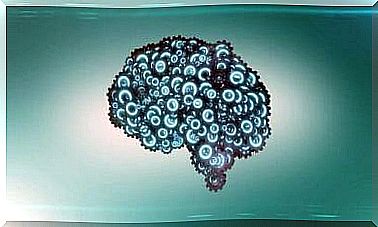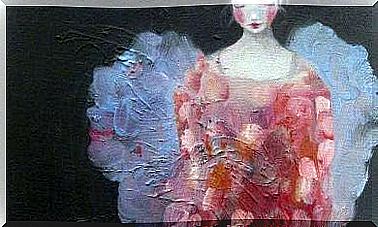Can We Trust Our Intuition?

There are many elements that help us in planning the resolution of a problem, but what do we know about so-called intuition? It transcends reason. Linked to this word is the term “presentire”, which means to intuit, guess or have the impression that something is about to happen.
Well yes: we have the ability to make decisions in a matter of seconds and not be wrong. But it seems impossible that a mechanism that contributes so decisively to our survival should be governed by chance, especially if we consider all the times in which, indeed, it is right.
The fragility of intuition
We know we can’t always trust our first impressions. We all remember times when we relied on intuition and got it wrong. But we know that our intuition also works with approximations and shortcuts which, due to their global and general character, are far from being precise.

Intuition is a process that has always been associated with women (it is no coincidence that the expression “female intuition” is used in everyday language). Furthermore, it has always been considered something magical, a skill or a gift. However, although a part of science has failed to clarify certain situations, we know that its functioning has a much more logical and understandable explanation than magic.
The association mechanisms of our brain, often rapid, are at the basis of our intuition. They are fast because they are able to work with a large amount of information and because they can do it even though they are not the center of attention of our conscience.
Is it possible to influence rapid thoughts?
The story of Abbie Conant told us by Malcolm Gladwell in the book “Intuitive Intelligence” is not a simple story of the struggle against male chauvinism in the world of music. It is also a testament to how intuition can be fostered when reason gets in the way. Abbie played the trombone, a traditionally male instrument, in Italy in 1980. She sent her curriculum vitae to many European orchestras, but the only one to answer her was the Munich Philharmonic Orchestra.
The hearing took place behind a curtain, because one of the applicants was the son of an acquaintance of a member of the jury. Abbie Conant performed “Ferdinand David’s Concertino for Trombone” and missed a note. Although she came out pessimistic from the test, she was chosen by the jury to play in the orchestra.
Music experts recognized the quality of the interpretation in a matter of seconds. When Conant played, they saw everything clear and, after hearing her interpretation, they wanted to finish the audition right away.
It was a surprise to them when the chosen one came out and they saw that it was a woman. A woman who, in their minds, did not have the ability to play that instrument. They hired her, but passed a lot of evidence, until she had to go to court to be recognized.
This is an example of how we can manipulate the environment for intuition to flow. The curtain is fundamental in this story: since the thought part was canceled, only that of sensitivity and purity remained. Without the curtain, Abbie’s worth would have been overshadowed by one of the demons of intuition, prejudice.
The importance of clearing the way for reliable impressions
Despite the above, intuition tends to be reliable when we have little time to make a decision. Imagine they ask you to change departments at the office you work for and tell you to quickly decide why you need to fill that position. When you don’t have time to make a decision, trusting your intuition is the best option.

Intuition is also a good ally in processes where there is a large amount of information. So big that it is impossible to put everything on a scale to be calibrated with reason. In these cases, intuition, working away from the focus of our consciousness, has more power to give us the solution using all that information, without saturating our logical system.
Intuition is not exempt from the alterations caused by cultural contexts, prejudices or uncontrolled emotions. In other words, we can make mistakes. This is why we can use it as a resource, but never as the only solution. There are certain situations for which it is better to make conscious reasoning, as long as there is enough time.
We also want to tell you that you can improve your intuitive process by trying to identify the quick associations it works with and testing them. It is possible to see to what extent the voters of a certain political party identify with a certain characteristic or to what extent the inhabitants of a country respect a tradition with which they are identified from outside.
Improving and refining associations of this type will make your intuition more efficient, because the quick connections that are made in the brain will be faster.









